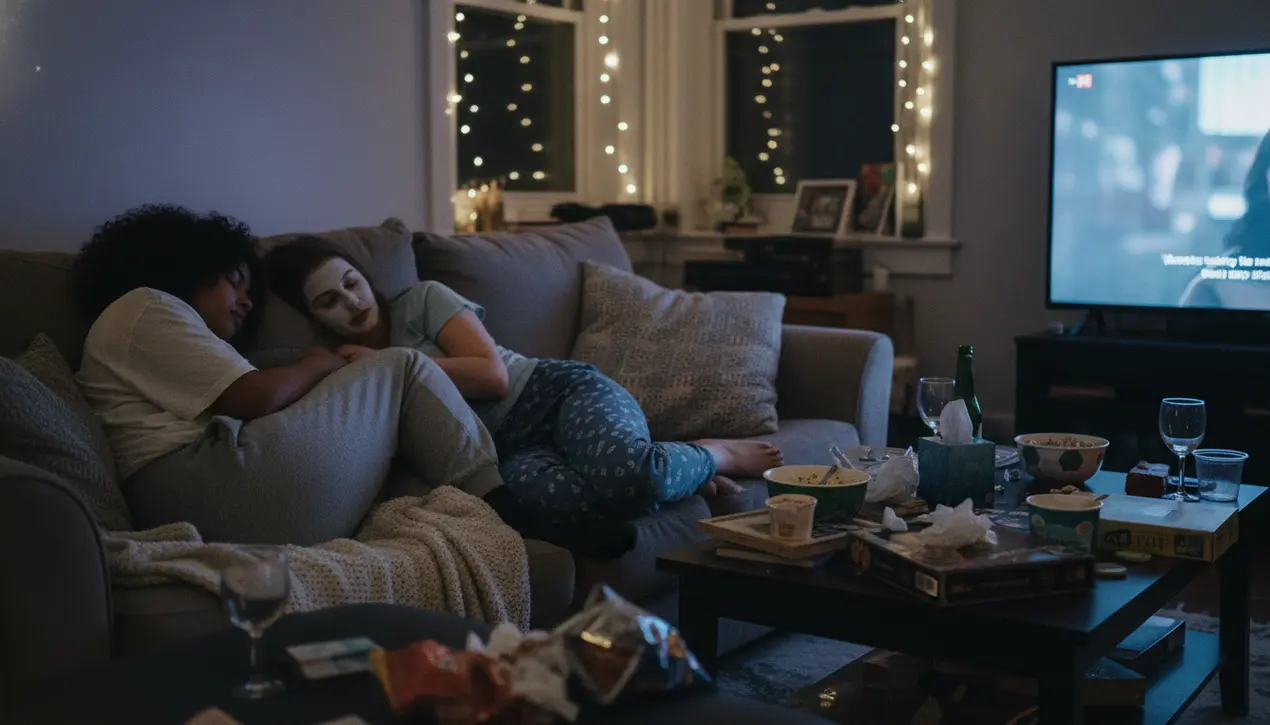
Otherothers newsSocial Issues
The Adult Sleepover: A Radical Act of Friendship in a Lonely World
LA
Laura Bennett
2 hours ago7 min read
On a recent Friday, Tonna Obaze’s couch transformed into a haven. She and her friend Bria, both navigating their late twenties in New York City, sought more than a rushed dinner.Their solution was a deliberate return to a simpler social ritual: the platonic sleepover. Arriving in comfortable clothes, they foraged for snacks and let a movie soundtrack a sprawling, heartfelt conversation about life's complexities, eventually falling asleep side-by-side.This scene is part of a quiet rebellion against performative adult socializing, a conscious choice for raw, undistracted connection. The sleepover, a cornerstone of adolescence often dismissed as juvenile in adulthood, is being reclaimed as an antidote to the loneliness epidemic.As meaningful friendship is sidelined by work and obligation, this ritual offers a powerful format for deepening bonds. While it resonates deeply with women seeking depth, men—who often bond through shared activities—could also find profound value in the vulnerability it fosters, perhaps in the guise of a camping trip or a multi-day convention.The magic lies in the gift of unpressured time. An entire evening, stretching into a shared morning, dismantles the frantic pace of modern life.There are no last calls, no checks to split, no need to maintain a curated persona. You simply coexist.This purposelessness is the point, a direct challenge to the always-on pressure we face. Professor Jeffrey Hall, a communication expert at the University of Kansas, affirms that such environments free us from the 'impression management' required at a bar or restaurant.Research corroborates this, showing that performing mundane daily tasks—like eating or watching television—alongside another person significantly amplifies enjoyment. The intimacy deepens as the night progresses, moving into the uniquely revealing territory of bedtime routines.You witness a friend's chosen sleepwear, their skincare ritual, their pillow preferences. Jaimie Arona Krems, a psychology professor and director of the UCLA Center for Friendship Research, underscores the significance: 'You’ve seen my big, stupid sleep shirt, and we’re still friends.' This tangible vulnerability often paves the way for emotional nakedness, creating a safe cocoon where guards drop and authentic selves emerge. This practice isn't exclusive to single urbanites.In Lakeland, Florida, Maegan Thompson, 31, regularly hosts sleepovers that recapture the spirit of childhood, complete with games and bonfires for a group of about ten friends, including parents. For those with families, the concept can be adapted into a communal backyard campout.The goal remains the same: to carve out an expansive block of time that prioritizes presence over performance. As Deandra Kanu, 29, reflected after a low-key sleepover with her long-distance best friend, the true entertainment isn't a screen or an activity; it's each other. In an age of scheduled hangs and digital noise, the adult sleepover is a radical act of friendship—a deliberate return to the foundational joy of simply being together.
#friendship
#adult sleepovers
#social connection
#mental health
#culture trends
#featured
Stay Informed. Act Smarter.
Get weekly highlights, major headlines, and expert insights — then put your knowledge to work in our live prediction markets.
Comments
Loading comments...
© 2025 Outpoll Service LTD. All rights reserved.